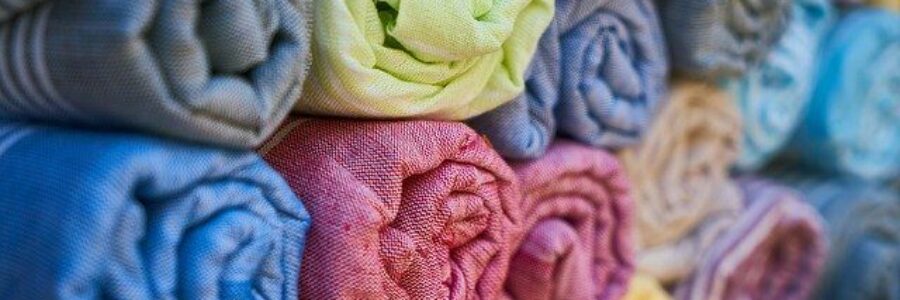If you have a skin condition like eczema or topical steroid withdrawal (TSW), sometimes it feels like anything touching your skin hurts, including your clothes! That’s why it’s important to choose your fabrics carefully so that what you wear isn’t triggering or making a flare-up worse.
Natural vs. Synthetic
If you are having an eczema or TSW flare-up, you want fabric that is less likely to cause itching or irritate open lesions. The golden fabric choices for those with chronic skin conditions are natural fibers like cotton or silk in soft and gentle weaves. Synthetic fibers are often very irritating, loaded with chemicals, and can block air circulation, trapping perspiration next to the skin. (The one synthetic fiber that is often tolerated well by those with sensitive skin is viscose.)
Yet not every natural fiber is a good choice for everyone. Wool is natural, but it can often feel scratchy and hot. Too much heat trapped next to the skin can trigger rosacea. While wool’s texture often gets the blame for being irritating, some people are sensitive or even allergic to the natural lanolin in wool. An allergy to lanolin can mimic contact dermatitis symptoms, including blistering, redness, swelling and itching
If you’re not allergic, but wool is still tricky for you, try wearing cotton or silk underneath your favorite wool sweater to create a barrier between the wool and your skin. If that’s still intolerable for your skin, keep your skin healthy in the winter by layering silks and cottons and avoid wool altogether.
Wearing fabrics that are too tight can be trouble for those with TSW or eczema – especially in the summer. Lightweight, loose-fitting clothing will allow air to circulate – cooling and allowing skin to heal.
Topical Fabric Treatments
Always wash your new clothes before wearing them if you have sensitive skin or TSW. New clothing from the store, even 100% cottons, may be treated with surface chemicals like artificial starches or anti-static and wrinkle treatments, including formaldehyde! There may also be residual chemical dyes in the fabric.
All of these surface chemicals usually come out in the wash. The absence of surface chemicals may be why some people with skin conditions swear by “organic” cotton products. Organic cotton is a great option (but watch out for rough and nubby weaves.)
In laundering your clothes, choose detergents free of colors and dyes, or those especially made for sensitive skin. You can suspect your detergent as a culprit in skin flare-ups if your rashes and lesions show up only in those places in contact with your clothes or sheets, and/or are worse where clothes are more fitted. Here is one place where choosing a more natural product can potentially solve minor chronic skin irritations, and lessen major ones.
Specialty Clothes
A handful of companies make pajamas and clothing specific for eczema. These are usually very light and soft cotton knits. Often the pajamas have gloves and/or footies sewn into them to prevent scratching while you sleep. These items may be good to try if your flare-ups are severe and causing you to lose sleep, especially since nights can be rough for those with eczema and TSW.
Conclusion
Choosing the right clothes in the right fabrics that help you feel more comfortable is one of the best ways you can love yourself while your skin condition is healing. The good news is that both natural fabrics and uncompromising self-care are both right in style!
Want to Learn More About Skin Health?
Click HERE to get the Amethyst Holistic Skin Solutions Newsletter. You’ll receive interesting information about skin health via articles, before/after pictures, case studies of Amethyst patients, videos, interviews and more. Feel free to share this article with someone who you think may benefit.
About the Author
Olivia Hsu Friedman, LAc, Dipl.OM, DACM, Cert. TCMDerm, is the owner of Amethyst Holistic Skin Solutions and treats Acne, Eczema, Psoriasis, and TSW. Olivia treats patients via video conferencing using only herbal medicine. Olivia is Chair of the Board of Directors of the American Society of Acupuncturists, serves on the Advisory Board of LearnSkin, and is a faculty member of the Chicago Integrative Eczema Group sponsored by the National Eczema Association.



